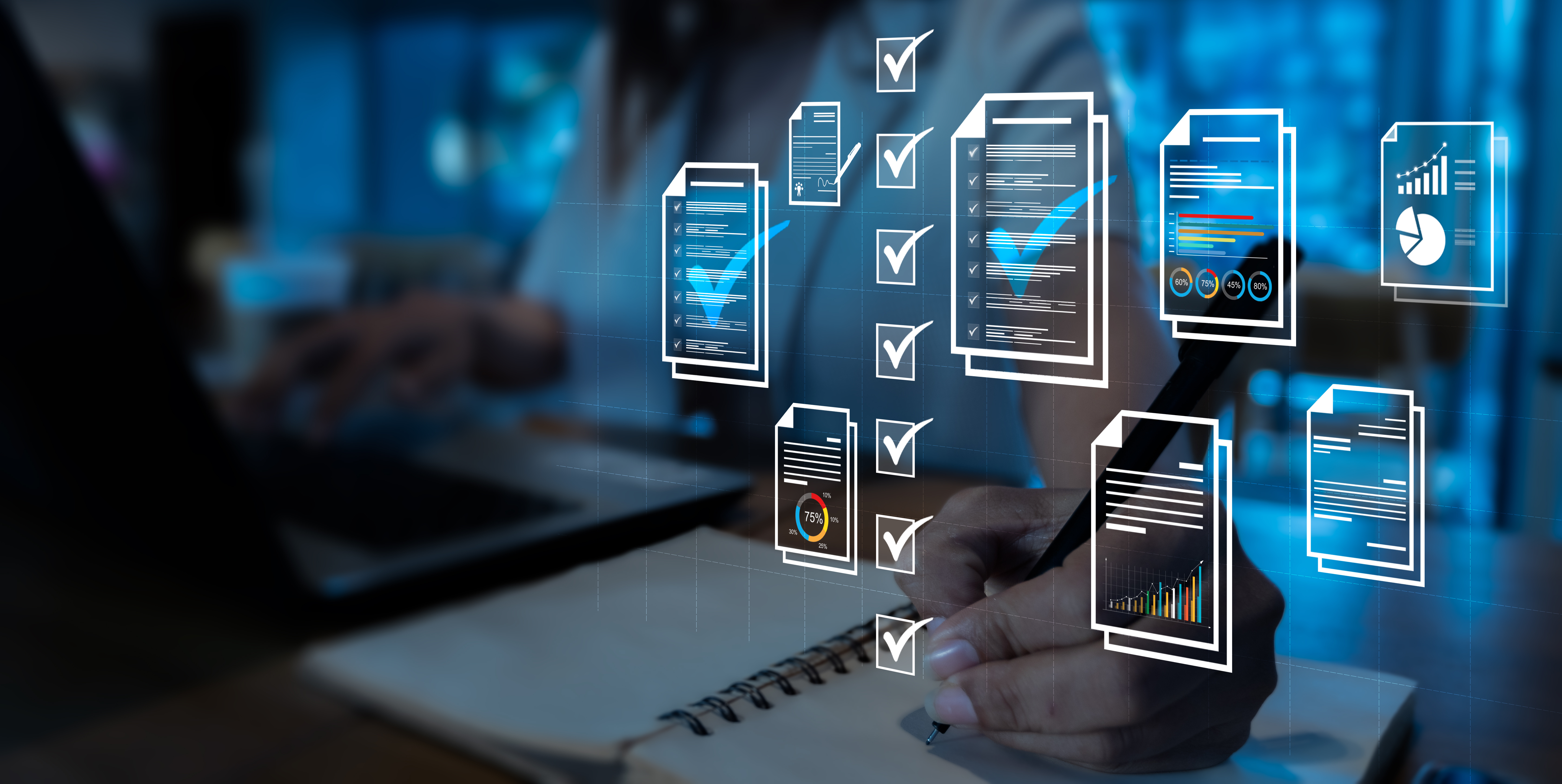ISO 27001 vs. SOC 2: a Comprehensive Guide
ISO 27001 vs. SOC 2: Discover the key differences, similarities, and best practices to choose the right security standard for your organization
In today's digital age, where cyber threats loom large and data breaches are headline news, ensuring the security of your organization's sensitive information is paramount. Two popular standards, ISO 27001 and SOC 2, offer robust frameworks to bolster your cybersecurity posture. While both aim to enhance security, they differ significantly in their scope, depth, and approach. This article will delve into the key distinctions of ISO 27001 vs. SOC 2 and help you determine which one is the right fit for your organization.
- What do ISO 27001 and SOC 2 have in common?
- What are their differences?
- Which one is the right fit for your business?
Let's unravel the mysteries of ISO 27001 vs. SOC 2 and help you make an informed decision.
Defining ISO 27001 and SOC 2
ISO 27001 or ISO/IEC 27001:2022 is an international standard developed by the International Organization for Standardization (ISO) in partnership with the International Electrotechnical Commission (IEC). It outlines the requirements for developing and maintaining an effective Information Security Management System (ISMS). The main goal of the standard is to maintain confidentiality, integrity, and availability of data to minimize information security risks. The standard consists of 11 Clauses and Annex A controls.
Learn more about ISO 27001 certification requirements.
SOC 2 (System and Organization Control) is a voluntary audit reporting standard developed by the American Institute of Certified Public Accountants (AICPA) that applies to service organizations handling sensitive customer data. The AICPA specifies that organizations must maintain control effectiveness to meet the 5 Trust Services Criteria—Security, Availability, Confidentiality, Processing Integrity, and Privacy. There are two types of SOC 2 reports: Type I and Type II. A Type I report assesses the design of an organization's controls at a specific point in time. In contrast, a Type II report examines both the design and operational effectiveness of these controls over a defined period.
SOC 2 has emerged as a de facto standard for US service providers. Any organization that processes or stores sensitive customer information can significantly benefit from undergoing a SOC 2 audit.
Read more about SOC 2 common criteria.
What are the Similarities Between ISO 27001 and SOC 2
SOC 2 and ISO 27001 are both widely recognized standards for assessing and proving an organization’s commitment to data security and risk management. While both standards are unique in their design and approach, many experts still find similarities between them. For example,
- Common controls: Many of their objectives overlap as they aim to protect sensitive information. Here’s AICPA’s downloadable mapping of SOC 2 Trust Service Criteria to ISO 27001. See the similar controls in more detail.
In addition to this, ISO 27001 and SOC 2 have a lot in common in how they can benefit organizations:
- Streamlined Security Processes: The rigorous auditing process associated with ISO 27001 and SOC 2 can help identify and address security weaknesses, leading to more efficient and secure operations.
- Increased customer trust: Both ISO 27001 and SOC 2 are used to demonstrate to your customers that you’re effectively managing your information security.
- Competitive advantage: ISO 27001 and SOC 2 are widely accepted by customers and key market differentiators when you are looking for enterprise deals.
- Regulatory Compliance: ISO 27001 and SOC 2 compliance can help organizations meet industry-specific regulations and standards, reducing the risk of penalties and legal issues.
While ISO 27001 and SOC 2 are powerful tools for enhancing information security, they both also present certain challenges:
- Continuous monitoring: ISO 27001 and SOC 2 necessitate a continuous monitoring mechanism and substantial resources to stay ever-compliant
- Complexity: The standards are comprehensive and can be complex to implement, especially for organizations with limited security expertise.
- Frequent Audits: ISO 27001 and SOC 2 reports typically require regular assessments and auditing activities, which can be time-consuming and expensive.
ISO 27001 vs. SOC2: What are their Differences?
Despite their similarities, both SOC 2 and ISO 27001 are unique in many ways:
Attestation vs. Certification
ISO 27001 is based on a certifiable framework with specific requirements, controls, and guidelines outlined in ISO Clauses and Annex A. Organizations must demonstrate compliance with these requirements to achieve certification. Achieving ISO 27001 involves a formal certification process performed by an accredited certification body.
Read more about ISO 27001 certification here.
SOC 2 compliance is demonstrated through a SOC 2 attestation report rather than certification. This report is generated by an external auditor and may include Type I (a point-in-time review) or Type II (assessment over a 6-12 month period), which provides more in-depth assurance of control effectiveness. There is no such thing as a SOC 2 certification or a successful audit results in the issuance of a SOC 2 report. This report, issued by an independent auditor, attests to the effectiveness of an organization's controls related to key TSC. The attestation process requires selecting appropriate trust service criteria, testing controls, and collecting evidence.
Getting ready for the SOC 2 audit? See where to start.
Focus and Purpose
ISO 27001 is an international standard focusing on the establishment, implementation, and continual improvement of an ISMS. ISO has mandatory clauses and predefined control activities that are necessary to implement for all organizations seeking ISO certification.
SOC 2 assesses how service providers manage data, specifically focusing on the Trust Services Criteria. While Security is the mandatory criterion, the others are optional. The applicability of other criteria depends on the type of services the organization provides customers’ expectations.
Applicability and Control Scope
ISO 27001 has a broad scope, covering all information security risks across the organization, including physical, digital, and personnel security. For example, an organization implementing ISO 27001 would need to consider a wide range of ISO 27001 certification requirements provided in 0-4 Clauses and Annex A controls. These include defining the organization’s context, establishing leadership, setting clear and achievable security objectives, allocating resources, developing a structured incident management plan, evaluating performance, and ensuring continuous improvement.
SOC 2 audit focuses more narrowly on systems and processes related to data management and customer interactions, specifically addressing the controls chosen in the Trust Services Criteria. For example, a cloud service provider implementing SOC 2 would focus on specific controls related to the security of the organization’s data and systems (obligatory) and at least one more TSC.
Geographic and Industry Relevance
ISO 27001 compliance is globally recognized and accepted by companies worldwide seeking assurance of information security. While vendors may not specially request ISO 27001, you can always capitalize on its credibility and win enterprise clients. It is widely used in industries such as IT, finance, telecommunications, and healthcare. SOC 2 is mostly in demand in North America. However, digital businesses, even outside the USA, are now demanding SOC 2 reports because of the rigorousness and reputation of the standard. SOC 2 is widely adopted by service organizations that handle sensitive customer data, such as Cloud service providers, SaaS, IT services, etc. Vendors often request it as part of their due diligence to ensure data security and compliance.
Flexibility and Customization
ISO 27001 offers more flexibility in terms of implementing controls and tailoring the ISMS to the organization's specific requirements. This flexibility is achieved through the use of a risk-based approach. Organizations can identify, assess, and treat risks relevant to their operations, leading to a more customized and efficient security program.
SOC 2 is more prescriptive, requiring adherence to specific control objectives and criteria. It outlines specific control objectives and criteria that service organizations must meet to achieve compliance. While this can provide a clear roadmap for implementing security controls, it may limit the ability to adapt to unique organizational requirements.
ISO 27001 vs SOC 2: Which One to Choose
ISO 27001 vs SOC 2: the decision between this would rest on the organizations’ customer requirements, target market, security posture, time, and ambitions. Many organizations eventually grow to get both. However, if you have to choose one over the other, here are some factors worth considering.
ISO 27001 certification is better to choose if:
- your customers have a specific requirement for their service providers to be ISO certified;
- you operate on an international scale and need a globally recognized information security standard;
- you aim to establish a comprehensive and mature information security management system (ISMS);
- you prioritize proactive risk management and want to identify, assess, and treat potential security threats.
- you are ready to allocate substantial time, financial, and human resources for the implementation and maintenance of ISMS.
SOC 2 is better to choose when:
- your clients explicitly require SOC 2 report as a prerequisite for doing business;
- you primarily work with American-based clients where SOC 2 is widely recognized and accepted;
- you need to get some customer-facing security reports quickly, as SOC 2 audits are often faster than ISO 27001 certifications;
- you already have an ISMS and want to validate your controls through a third-party assessment;
- you want an in-depth report on your data security posture.
ISO 27001 vs. SOC 2: Pairing Both
Note that the two compliances aren’t mutually exclusive. For that matter, they overlap depending on the size of the organization and the scope of the audit. So, you could also consider pairing the two. From an audit and certification standpoint, the overlap of requirements and controls makes the compliance journey relatively easier. Besides, many organizations typically go on to add both frameworks as they grow and expand in new geographies.
Additionally, it is important to note that the ISO 27001 report gives a little about the audit findings. It does not highlight which parts of the systems have non-conformities. SOC 2 report is highly granular and gives details on every aspect of the audit. It includes the external auditor’s opinion, management assertion, system description, and effective controls list and tests.
ISO 27001 Certification and SOC 2 Audit Readiness with Planet 9
Both ISO 27001 certification and SOC 2 audits are significant undertakings that require substantial time and resources. For organizations with limited internal expertise or capacity, engaging a third-party consulting firm can be a strategic decision to streamline the process and ensure successful outcomes.
We at Planet 9 offer comprehensive consulting services to guide organizations through the complex journey of achieving and maintaining ISO 27001 and SOC 2 compliance.
Depending on your internal resources’ expertise and availability, Planet 9 can entirely or partially assist with the following:
- Determining which standard is better for your business at a current point in time;
- Conduct a SOC 2 audit readiness, ISO 27001 certification readiness, or combine both.
- Perform a security risk assessment
- Perform gaps remediation
- Manage internal and external audits
- Establish and maintain a continuous compliance program.
Planet 9 can help secure your business and save money by delivering practical information security and compliance programs, security risk assessments, compliance evaluation, and certification readiness. Our expertise and experience will help your business to mitigate the need to recruit and retain expensive staff.
Schedule a free consultation today to explore how Planet 9 can help you achieve your security and compliance goals.







